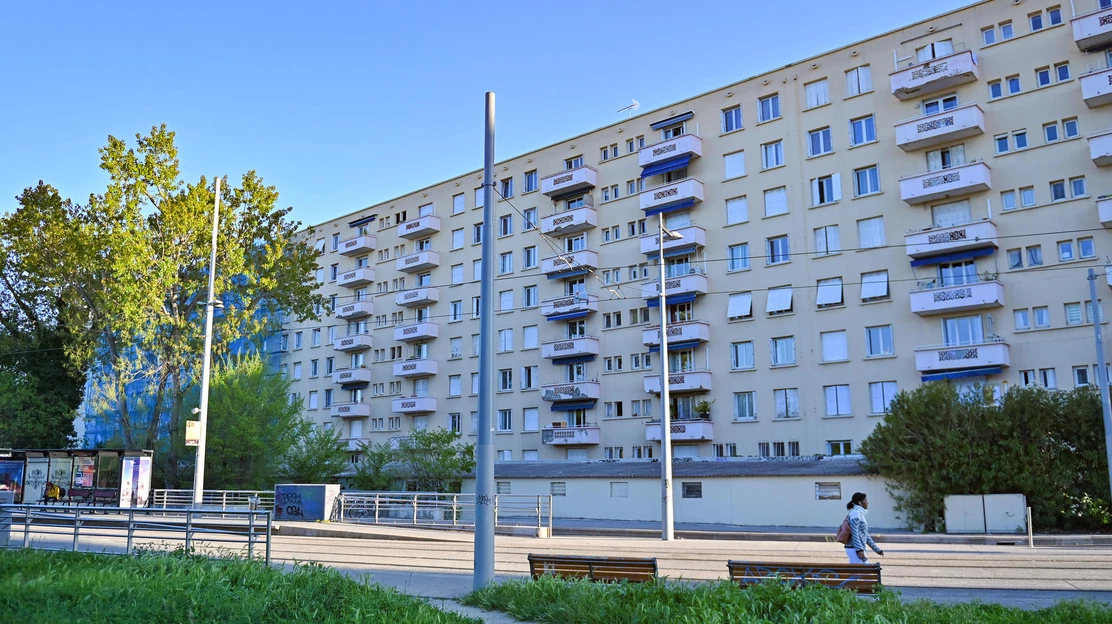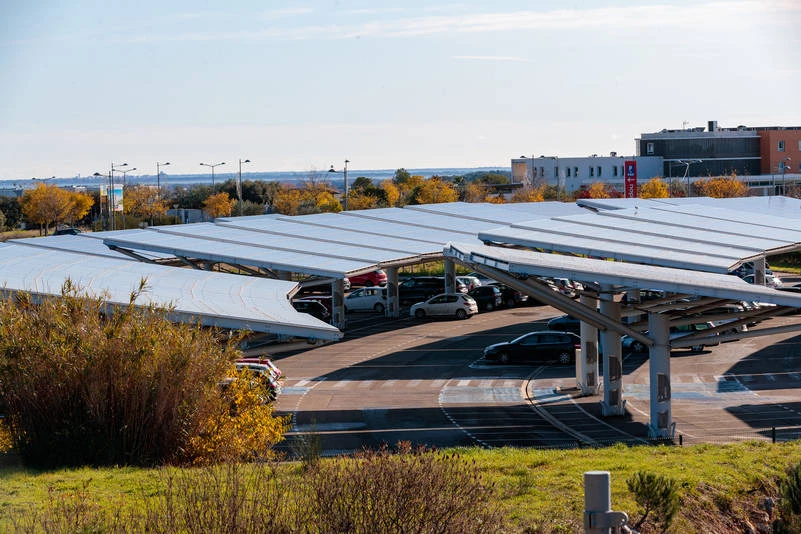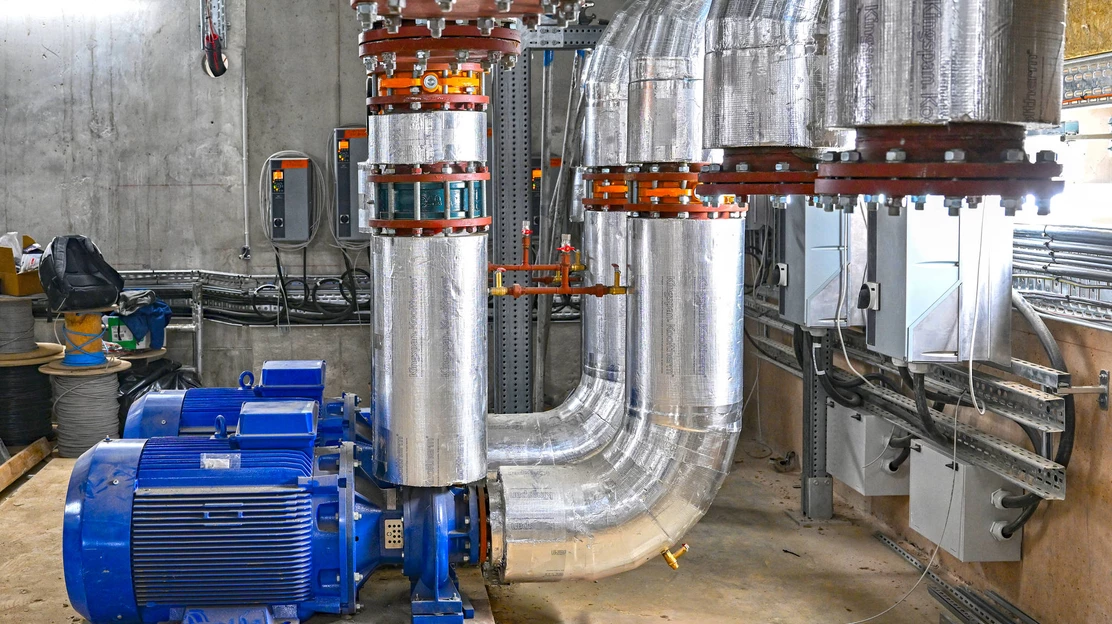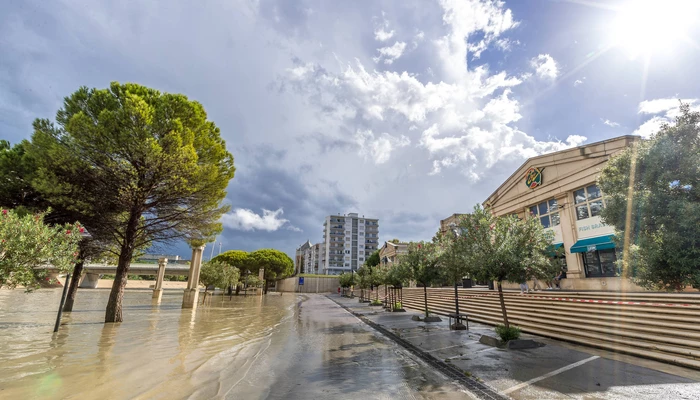Objectives and challenges
The Schéma Directeur des Énergies (SDE) plans the production, distribution and consumption of energy in the region up to 2030. It identifies action levers to achieve the objectives of the Plan Climat Air Énergie Territorial solidaire (PCAETs) 2021-2026.
2 major challenges:
- Reducing energy consumption in buildings and transport
- Consuming decarbonized energy as part of the 2050 carbon neutrality project.
The Plan Climat Air Energie Territorial Solidaire (PCAETs) thus displays a local renewable energy target covering 44% of the territory's energy consumption in 2050, of which 61% from photovoltaics.
Currently, biomass is the most widely used renewable energy on the territory. The aim is to increase production by a factor of 2 by 2050. The Bois-chaleur 2050 roadmap, an operational variation of the Climate Plan, sets out the actions to be taken, to achieve this increase.
Increasing the energy performance of buildings

Targets 2030:
- Renovate 4,500 homes per year (40% energy gain)
- Achieve 20% of tertiary housing stock renovated (Bâtiment Durable Occitanie level)
- Continue support for households in precarious situations (increase from 15% to 10%)
Housing energy renovation is a key issue in the region.
Decarbonizing mobility

Targets for 2030:
- Achieve 15% bike modal share
- 100% decarbonized public transport fleet
- Decarbonize business mobility and commuting
The Metropole is installing electric charging stations in metropolitan buildings and is also supporting the development of electric charging stations on its territory.
To encourage modal shift, Montpellier Méditerranée Métropole has become the first French metropolis to implement free public transport for its residents.
A number of options are available to help staff do without their personal car for their home-to-work commute: payment of a public transport season ticket, long-term loan of a conventional or folding bicycle, long-term rental of an electrically-assisted bicycle or even a kilometre-based bicycle allowance.
Also, for business travel, the Metropole has embarked on the greening of its fleet by acquiring numerous electric vehicles (aiming to go from 8% of electric vehicles under 3.5 tons in 2019 to 49% in 2025) or CNG and electric-assist bicycles to first highlight the community's policy on the territory.
Developing renewable and recovered energies

Targets 2030:
- Increase the share of renewable and recovered energies consumed by 33.6%, with 14.6% of local origin, i.e. additional production of +75%
- Multiply electricity production via photovoltaics by 4
Montpellier Méditerranée Métropole has developed a solar cadastre to help identify the solar potential of the roofs of homes or buildings and, to study the possibility of generating electricity by installing photovoltaic solar panels.
The Plan Local d'Urbanisme Intercommunal Climat includes measures to facilitate the production of renewable energy in the area.
The territory's businesses will be mobilized to support the photovoltaic development plan and encourage the emergence of projects.
Zones d'accélération des Énergies renouvelables (EnR)
The law of March 10, 2023 (APER law) aims to accelerate the development of renewable energies, so as to combat climate change and preserve France's security of electricity supply.
Communities are invited to identify "acceleration zones" for the establishment of renewable energy production facilities: wind, photovoltaic, thermal, geothermal, hydroelectric, biomass.... These projects can benefit from state support.
Validation of these zones by the Municipal Councils is preceded by a public consultation and support from the Metropole.
Expanding the heating network

Targets 2030
- Tripling the heating network to 5 million m2 heated
- Achieving 80% renewable heat in public networks
A master plan for heating networks is currently under construction. In particular, it aims to study the potential for extending heating and cooling networks across the territory.
Climate change adaptation strategy
A distinction is made between mitigation of climate change, which involves reducing the greenhouse gas (GHG) emissions that cause it, and adaptation to the inevitable consequences of global warming: heat waves, fires, floods, health impacts, urban heat islands, rising sea levels, reduced agricultural yields...
While efforts to reduce GHG emissions help prevent a global planetary phenomenon, adaptation efforts are localized and specific to a territory, depending on its characteristics.
For the Metropole of Montpellier, the adaptation challenges concern the effects of rising temperatures (heatwaves, urban heat islands), the preservation of water resources, the continuity of public services during periods of high heat, the maintenance of agricultural yields...
A vulnerability diagnosis has been drawn up with the assistance of the ADEME. A strategy on the theme of "Living well in an urban environment with high heat" is currently being drawn up.
Discover also




